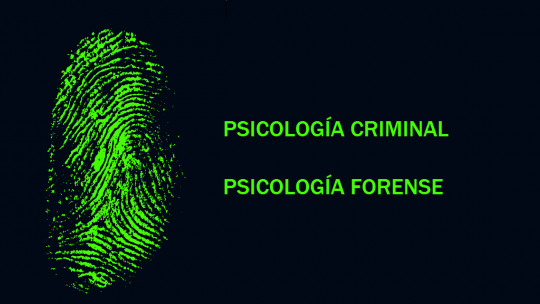
Currently, the law usually grants victims a leading role during a judicial process. This trend, accompanied by the impulse of modern criminology, has allowed the development of a new scientific discipline: victimology In judicial processes, the focus has ceased to be on the relationship between the accused and the State, in a manner completely unrelated to the context in which a crime was committed. And, when a subject commits a crime, he not only breaks the law, but also affects other agents in a negative way, affecting his mental health.
Victims may develop a psychological disorder, such as post-traumatic stress disorder (PTSD); They may also experience high levels of anxiety, depression, subjective distress, and other psychological variables during this process. In this article we will expose the different aspects of the object of study of victimology, emphasizing how a crime can affect the mental health of the victims. At the same time, we will develop the contributions of this discipline in relation to education.
Victimology: what is it?
Victimology is a scientific discipline in which various areas of knowledge converge, such as criminal law, criminology and psychology. Its object of study is, according to Márquez Cárdenas, to study the victim from the point of view of her suffering. According to some authors such as Mendelsohn, victimology is built on three “fundamental pillars”, which we could think of as different dimensions of analysis to study the place of the victim.
The three dimensions of victimology
First of all, victimology studies the subject from a biopsychosocial dimension This means that it does not think of the victim in isolation from the context, but rather conceives them as part of a sociocultural framework that determines them. From this approach, victimology seeks to contrast the subject with all those factors that stimulate him to become a victim.
On the other hand, this discipline addresses the criminological aspect, which integrates the personality of the victim in relation to the set of problems of crime. The view of this discipline, in which ‘psi’ knowledge from psychology and psychiatry interferes, always privileges the maintenance of a “therapeutic and prophylactic” point of view. That is to say, conceives the prevention and assurance of the mental health of the victims as a primary aspect to take into account throughout the analysis process
Finally, victimology studies the victim from its legal dimension. This implies considering the relationship that exists between the law and the victim in those cases in which a judicial process is carried out, which seeks to remedy the damages that the crime caused.
The mental health of the victims
With these theoretical aspects in mind, we will delve into the most significant findings from victimology and other disciplines in relation to how a crime affects the mental health of victims. Although the severity of the signs and symptoms a person experiences will depend on a wide range of variables—from their personality traits to the crime that was committed against him or her—in all cases the victim’s mental health is affected. is affected.
Victimology studies the suffering of victims of domestic violence, for example. The physical consequences are numerous, but so are those of a psychological nature. Victims of domestic violence, mostly women, suffer from deterioration in their self-esteem; They score high on variables such as anxiety and depression; as well as frequently experience feelings of guilt and shame. The latter are risk factors for the triggering of mental health disorders, such as major depressive disorder, post-traumatic stress disorder, generalized anxiety or panic disorders, eating behavior disorders, substance abuse, etc.
However, other types of milder crimes—taking as a reference the degree to which they violate a person’s mental health—also produce consequences on the victim Such is the case of assaults, robberies or looting of property. A study carried out by Caballero and collaborators found that people who suffered a robbery in their homes suffered symptoms that negatively affected their mental health, such as high levels of stress, recurring memories about the experience of the robbery, irritability, hypervigilance and worry about the future. The discomfort tends to dissipate over time in crimes like this, but even then there are symptoms that persist, particularly stress and hypervigilance for fear that a new robbery will occur.
Victimology and its relationship with education
Taking as a guide a biopsychosocial conceptualization of the subject of victimology, the consequences suffered by a victim are not exclusively linked to one area of their life, but rather have an impact on all or most of them. The negative effects are reflected in interpersonal ties, whether in the area of family, couples or friends; Likewise, they have repercussions in the work area and in academics
In relation to the latter, we know that the fact of having been a victim of some crimes would be related to a greater dropout rate. Victimology understands this aspect, one of its fundamental objectives being the search for alternatives to alleviate the negative effects suffered by victims regarding their education.
Beyond this, the relationship between education and victimology can be addressed from a preventive perspective. It is often said that education is the best way to prevent individuals who carry out criminal acts from developing in a society. However, we are not absolutely certain that this is the case; But we do know that education has a crucial socializing potential in children and adolescents, since it allows the internalization of society’s norms. Therefore, these areas are related in a bidirectional way: education enacts the replication of institutional rules that operate as preventives of illicit behavior; while Victimology is concerned with ensuring the permanence of victims in educational institutions, preserving their mental health








